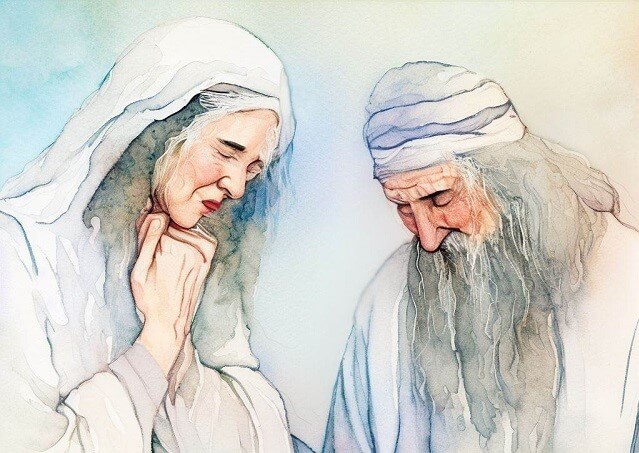
Speaking Against Moses
It seems unfair. Both Aaron and Miriam spoke disparagingly of their brother Moses. Both Aaron and Miriam failed to grasp the unique level of Moses’ prophecy. They thought Moses was their spiritual and prophetic equal: “Is it only to Moses that God speaks? Does He not also speak to us?”
God was angry with them, and He punished Miriam with leprosy:
“God displayed anger with them and departed. When the cloud left the Tent, Miriam was leprous, white like snow. Aaron turned to Miriam, and saw she was leprous.” (Num. 12:9-10)
Why was only Miriam punished with leprosy? Why was only Miriam publicly embarrassed with an affliction associated with improper use of language? Why was only Miriam forced to remain outside the encampment for an entire week?
In fact, the Sages taught that Aaron did not get off scot-free. They understood from the words, “God displayed anger against them,“ that Aaron was also disciplined. His punishment, though, was less severe than Miriam’s, since it was his older sister who instigated the verbal attack against Moses. (Miriam’s leading role in the incident is indicated by the fact that she is mentioned first: “Miriam and Aaron spoke against Moses...”.)
What was Aaron’s Punishment?
The exact nature of Aaron’s punishment, however, is a matter of dispute. Rabbi Akiva understood that Aaron was also punished with leprosy. But, unlike Miriam who suffered for a full week, Aaron’s affliction was transient.
Rabbi Yehudah Ben-Betaira disagreed. Aaron was not physically disciplined. His punishment was being reprimanded by God.
According to Rabbi Akiva, Aaron needed to be physically punished like Miriam. There must have been some minor defect in Aaron’s character that led to his lack of awareness of Moses’ unique prophetic stature. That personality defect required the affliction of leprosy — albeit briefly — in order to cleanse and rectify it.
Rabbi Yehudah, on the hand, rejected the idea that Aaron was subject to such a character defect. Unlike Miriam, Aaron’s sin was a matter of misjudgment — an error of the intellect. Therefore, the appropriate punishment was a Divine rebuke. Actual physical correction was not necessary.
Revealing What the Torah Sought to Conceal
Rabbi Yehudah rejected his colleague’s opinion for an additional reason:
“Akiva! In either case, you will be called to task [for your words]. If you are right, the Torah shielded Aaron, while you disclose him. And if not, you have cast a stigma upon a righteous man.”
Even if Rabbi Akiva was right and Aaron was in fact afflicted with leprosy, the Torah does not say so explicitly. If the Torah purposely chose to conceal Aaron’s punishment, what right did Rabbi Akiva have to publicize it?
Why was Rabbi Akiva not concerned about this?
Rav Kook wrote that Rabbi Akiva did not distinguish between a hidden detail that can be inferred from a verse, and a punishment explicitly stated in the text. Rabbi Akiva was famous for expounding each little ‘crown’ that embellishes the letters of the Torah.
In the scholar’s extraordinary love for Torah, and due to his penetrating sensitivity to every hint and nuance, there was little difference between the Torah’s implicit and the explicit messages.
(Adapted from Ein Eyah vol. IV, pp. 239-241, on Shabbat 97a)





